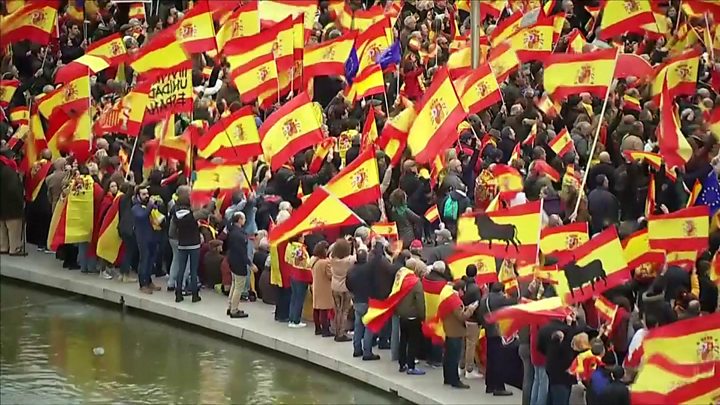
Tens of thousands gathered in Madrid for a protest by right-wing parties opposed to a Spanish government plan to ease tension in the Catalonia region.
The centre-right Popular Party (PP) and Ciudadanos (Citizens) called the protest after PM Pedro Sánchez offered separatists a rapporteur for talks.
The right considers the offer a betrayal and surrender. The separatists have rejected the offer anyway.
Like the right, the ruling Socialists also oppose Catalan independence.
Far-right groups including the Vox party are also present at the protest, held under the slogan "For a united Spain. Elections now!"
Protesters filled the Spanish capital's Colon Square and nearby streets, many of them chanting "long live Spain" or singing along to taped music, including songs by Tom Jones and Lady Gaga.
Police put the total number of demonstrators at 45,000.
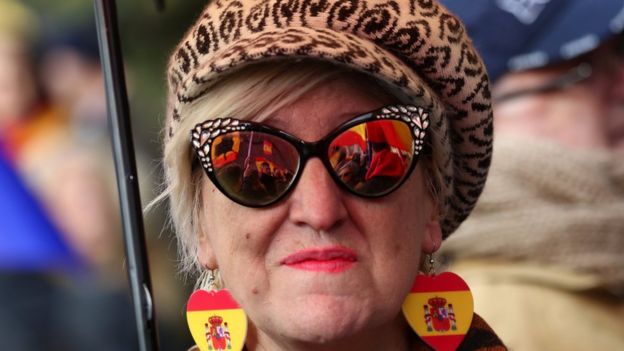 REUTERS
REUTERS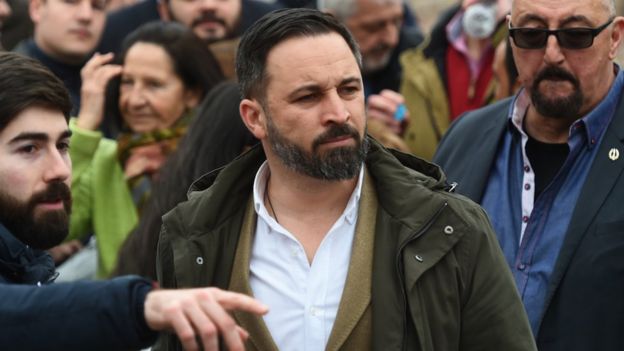 EPA
EPAWhat are the protesters saying?
They are objecting to an offer made by the government to separatists in recent days to hold round table talks and appoint a special rapporteur, which they consider to be a capitulation.
They also want elections currently scheduled for 2020 to be brought forward.
One protester, Mabel Campuzano, told Reuters news agency that Mr Sánchez was "betraying Spain and we think that Spaniards don't deserve him as the president of the government".
In a speech to the crowds, PP leader Pablo Casado denounced Mr Sánchez's policies as "Socialist surrender" and "deals under the table", Efe news agency reported.
"Sánchez's time is over," Mr Casado said, adding that the protests were a turning point and the beginning of a return to "harmony and legality" in Spain.
What does the government say?
Speaking shortly afterwards at a local election campaign meeting, Mr Sánchez said his Socialist Party had always been on the side of dialogue, and was now attempting to resolve a crisis made worse by the PP while it was in power.
But the government announced on Friday that the separatists had rejected its framework for talks.
Deputy Prime Minister Carmen Calvo said the situation had "stalled", as separatist calls for an independence referendum were "not acceptable".
Meanwhile the separatists accused the government itself of abandoning dialogue.
What has been happening in Catalonia?
Catalan nationalists regained power in Barcelona in May, after a seven-month period of direct rule by Madrid.
Mr Sánchez became prime minister the following month, making negotiations with the pro-independence movement his priority.
He heads a minority government that depends on nationalists - including Catalans - to stay in power, despite ruling out an independence referendum.
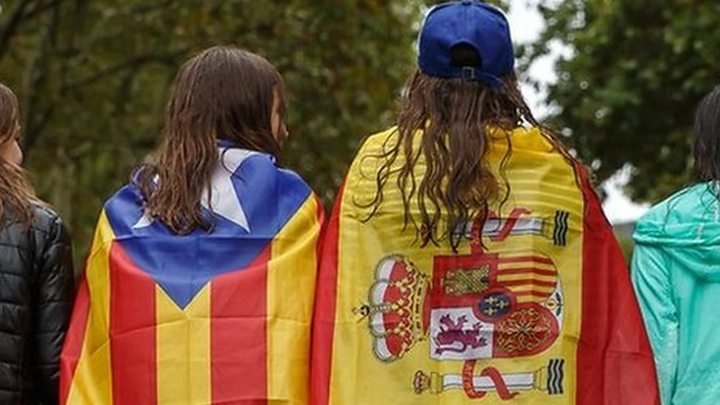
Tensions remain high, as many Catalans resent Madrid's show of force last year, when it charged pro-independence leaders with sedition.
Some of them are due to go on trial on Tuesday and face up to 25 years in prison.
In December Catalan premier Quim Torra irritated the Spanish government by praising Slovenia's successful - but bloody - path to independence. It broke away from Yugoslavia in 1991.
Europe
'Yellow vest' protester loses fingers
- 9 February 2019
- Europe
'Hitler paintings' fail to sell at auction
- 10 February 2019
- Europe
Shut detention camps, Turkey tells China
- 10 February 2019
- Asia

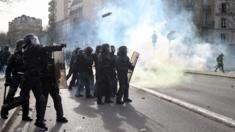

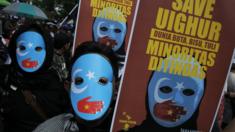
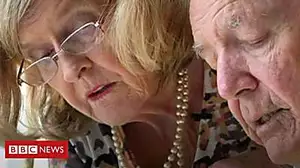
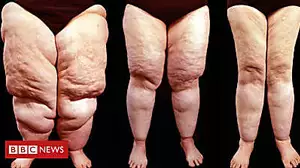
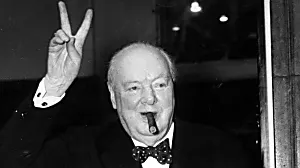
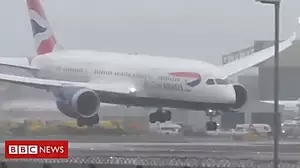
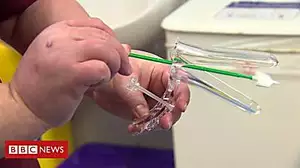
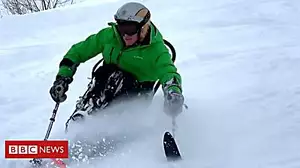


No comments:
Post a Comment